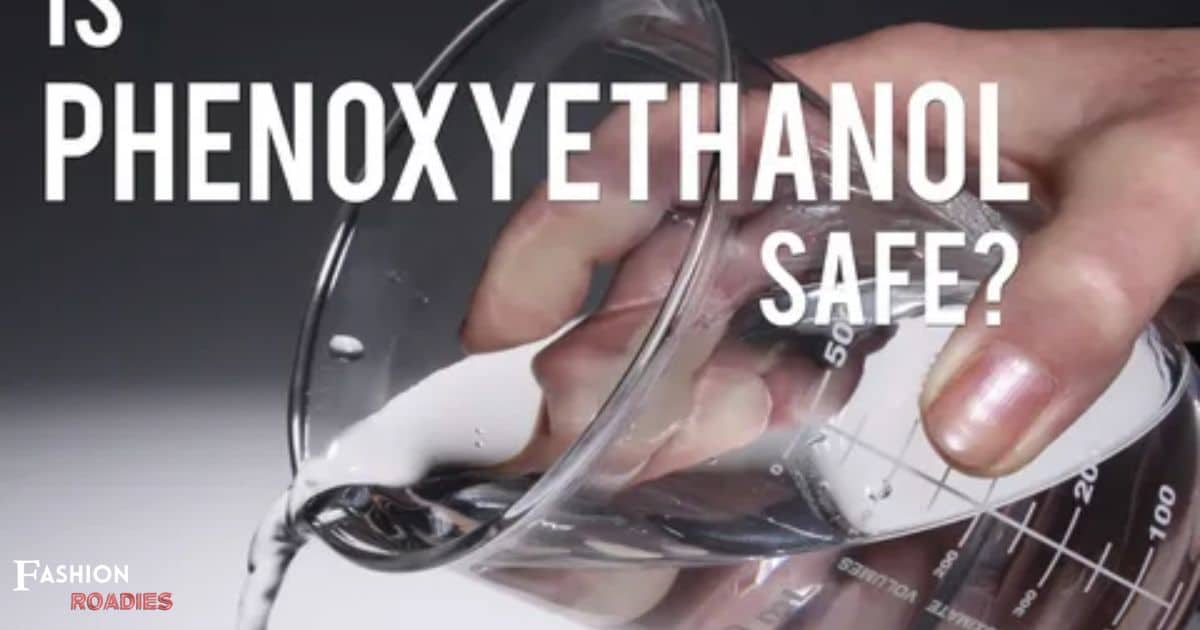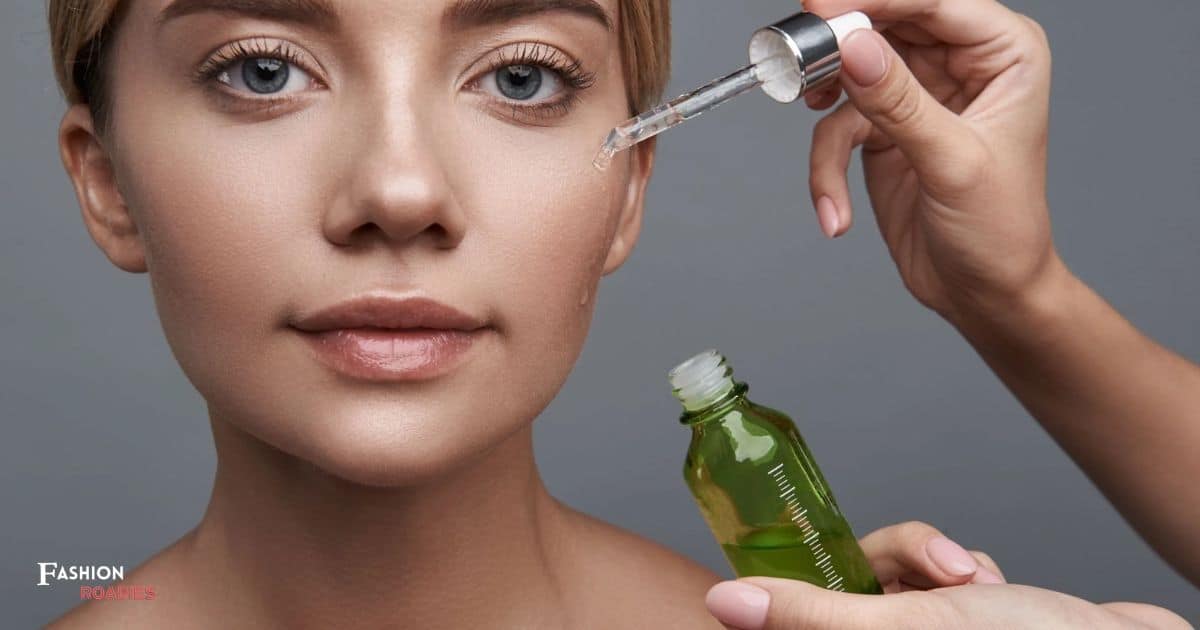In the realm of modern skincare, the presence of phenoxyethanol has sparked both curiosity and concern. This chemical compound, known for its preservative properties, has become a staple ingredient in many skincare products. As we delve into the world of phenoxyethanol, we aim to uncover its origins, functions, and potential benefits. Additionally, we will address any controversies or safety concerns surrounding its use. Join us in this scientific exploration as we unravel the mysteries of phenoxyethanol in skincare.
Key Takeaways
- Phenoxyethanol is a colorless, oily liquid used as a preservative in skincare products to prevent microbial growth and extend shelf life.
- It has low irritancy potential and is compatible with various skin types, but patch testing and formulation considerations are important for individuals with potential sensitivities.
- There are some safety concerns surrounding phenoxyethanol, including skin irritation and allergic reactions, as well as potential reproductive toxicity in animal studies.
- Natural alternatives like rosemary extract or grapefruit seed extract are available for those who prefer phenoxyethanol-free skincare products.
The Origins of Phenoxyethanol
The origins of phenoxyethanol can be traced back to the mid-20th century when it was first synthesized for use in various industries. Phenoxyethanol, also known as ethylene glycol monophenyl ether, is a colorless, oily liquid that is widely used as a preservative in skincare products. It has gained popularity due to its efficacy in preventing microbial growth and extending the shelf life of cosmetics and personal care items. Phenoxyethanol is compatible with different skin types and is considered safe for use in skincare formulations. However, it is important to note that some individuals may experience potential side effects such as skin irritation or allergic reactions. Although controversial, studies have shown that phenoxyethanol is generally well-tolerated when used within the recommended concentration limits. As with any ingredient, it is advisable to perform a patch test before using products containing phenoxyethanol to minimize the risk of adverse reactions.
The Function of Phenoxyethanol in Skincare
Phenoxyethanol’s function in skincare is to act as a preservative and prevent microbial growth, ensuring the integrity and longevity of the product. It is a widely used ingredient in cosmetics due to its effectiveness in preventing the growth of bacteria, yeast, and mold. Phenoxyethanol is a clear, colorless liquid with a faint floral odor. It is compatible with various skin types and has low irritancy potential. Research has shown that phenoxyethanol has antimicrobial properties, making it an ideal choice for preserving skincare products. However, it is important to note that there have been concerns regarding potential side effects of phenoxyethanol, such as skin irritation and allergic reactions. It is recommended to use products containing phenoxyethanol within the recommended concentration limits to minimize the risk of adverse effects. Overall, phenoxyethanol plays a crucial role in maintaining the safety and quality of cosmetics, but it is important for consumers to be aware of potential side effects and use products responsibly.
The Benefits of Phenoxyethanol in Skincare Products
Phenoxyethanol is a commonly used preservative in skincare products due to its effectiveness in preventing microbial growth. It has a broad spectrum of activity against bacteria, yeast, and mold, making it a reliable option for product stability. Additionally, phenoxyethanol is generally well-tolerated by different skin types, including sensitive skin, making it a suitable choice for a wide range of consumers. However, it is important to note that some individuals may experience skin irritation or allergic reactions, highlighting the need for patch testing and careful formulation considerations.
Preservative or Toxin
The ongoing debate surrounding phenoxyethanol centers on its classification as either a preservative or a toxin, prompting in-depth analysis of its potential effects on skincare products and consumer health. Phenoxyethanol is a widely used ingredient in skincare products due to its ability to inhibit the growth of bacteria and fungi. However, concerns have been raised about its safety and potential health risks.
- Some studies suggest that phenoxyethanol may cause skin irritation and allergic reactions in certain individuals.
- There have been reports of phenoxyethanol being linked to reproductive toxicity in animal studies, although the relevance to humans is still unclear.
- It is important to note that the concentration of phenoxyethanol used in skincare products is strictly regulated to ensure safety for consumers.
Further research is needed to fully understand the potential risks and benefits of using phenoxyethanol in skincare. As with any cosmetic ingredient, it is advisable to consult with a dermatologist or cosmetic chemist for personalized recommendations and to address any concerns regarding its use.
Safe for Sensitive Skin?
Numerous studies have shown that a small percentage of individuals with sensitive skin may experience mild reactions when using skincare products containing phenoxyethanol, highlighting the importance of carefully considering its suitability in such cases. Phenoxyethanol is a widely used preservative in cosmetics due to its broad-spectrum antimicrobial properties. It effectively prevents the growth of bacteria, yeast, and mold, thereby extending the shelf life of skincare products. As a chemical compound, phenoxyethanol is a colorless liquid with a faint rose-like odor. It is compatible with various skin types and has been deemed safe for use by regulatory bodies such as the FDA and the European Union. However, it is important to note that individual sensitivities can vary, and some people may experience adverse reactions such as redness or irritation. It is recommended to conduct patch tests before using products containing phenoxyethanol, especially for those with sensitive skin. Overall, while phenoxyethanol is effective as a preservative, its suitability for sensitive skin should be carefully considered to address any potential safety concerns.
The Safety Profile of Phenoxyethanol
A growing body of scientific research has provided valuable insights into the safety profile of phenoxyethanol. This chemical compound is commonly used as a preservative in skincare products due to its ability to prevent microbial growth and extend the shelf life of these products. It is compatible with various skin types and has been found to be effective in preserving the integrity of cosmetic formulations. However, concerns have been raised regarding the potential side effects of phenoxyethanol, such as skin irritation and allergic reactions. To address these concerns, regulatory agencies, like the FDA and the European Union, have established guidelines and restrictions on the concentration of phenoxyethanol in skincare products. These regulations aim to ensure the safe use of phenoxyethanol while maintaining its efficacy as a preservative. It is important for consumers to be aware of these regulations and make informed decisions when selecting skincare products.
Phenoxyethanol as a Preservative in Skincare
Phenoxyethanol is commonly used as a preservative in skincare products due to its ability to inhibit the growth of microorganisms. It works by disrupting the metabolic processes of bacteria and fungi, ensuring the safety and longevity of the product. While it is generally considered safe for use in skincare, some individuals may experience allergic reactions or skin irritation, and there have been discussions about potential alternatives to phenoxyethanol.
Safety Concerns Addressed
The thorough investigation and analysis of potential risks and countermeasures have effectively addressed the safety concerns associated with the use of phenoxyethanol as a preservative in skincare products. Phenoxyethanol is a commonly used preservative in skincare products due to its broad-spectrum antimicrobial properties and compatibility with different skin types. It functions by inhibiting the growth of bacteria, fungi, and other microorganisms, thereby preventing product contamination and ensuring product safety. Regulatory guidelines, such as those provided by the European Union and the FDA, specify the maximum allowable concentration of phenoxyethanol in skincare products to minimize potential side effects. While rare cases of allergic reactions and skin irritation have been reported, these instances are limited and can be attributed to individual sensitivity rather than inherent toxicity. Overall, when used within the recommended concentration range, phenoxyethanol is considered safe for use in skincare products.
Alternatives to Phenoxyethanol?
Exploring viable substitutes for phenoxyethanol in skincare products has become a prominent consideration in the industry. Phenoxyethanol, a widely used preservative in cosmetics, is valued for its ability to inhibit microbial growth and extend the shelf life of products. However, some individuals may have concerns about its safety or prefer to use products with natural preservatives. It is important to note that phenoxyethanol is considered safe for use in skincare products at concentrations below 1%. Research has shown that it is effective against a broad range of microorganisms and has minimal irritant potential. Nevertheless, there are natural alternatives available, such as plant-based preservatives like rosemary extract or grapefruit seed extract, which can also provide antimicrobial properties. These alternatives offer consumers the choice to opt for products that align with their personal preferences.
However, it is essential to acknowledge that the controversies surrounding phenoxyethanol should not be overlooked.
The Controversies Surrounding Phenoxyethanol
Amidst ongoing debates and concerns, various studies have been conducted to determine the potential risks associated with the use of phenoxyethanol in cosmetic products. Phenoxyethanol is a widely used preservative in skincare formulations due to its antimicrobial properties and compatibility with various skin types. However, its use has sparked controversies regarding its potential carcinogenic effects.
- Some studies suggest that phenoxyethanol may have carcinogenic properties, although the evidence is inconclusive.
- Regulatory restrictions on phenoxyethanol vary across different countries. For example, the European Union restricts its concentration in cosmetic products, while the United States allows its use within certain limits.
- Alternative preservatives, such as natural alternatives or combinations of preservatives, are being explored to address the concerns surrounding phenoxyethanol in skin care.
It is important to note that the safety of phenoxyethanol in skincare products is continuously assessed by regulatory agencies and scientific research. Consumers should stay informed and make informed choices based on their personal preferences and needs.
How to Incorporate Phenoxyethanol-Free Skincare Into Your Routine
To prioritize the use of safer ingredients, individuals can opt for phenoxyethanol-free skincare products and seamlessly integrate them into their daily routine. Phenoxyethanol is a commonly used preservative in skincare products due to its antimicrobial properties and ability to prevent the growth of bacteria and fungi. It is compatible with a wide range of skin types and does not typically cause irritation or allergies. However, there have been concerns regarding its potential side effects, including skin irritation and allergic reactions in some individuals. To address these concerns, phenoxyethanol-free skincare alternatives have been developed, utilizing natural preservatives such as essential oils, plant extracts, and other antimicrobial agents. These alternatives provide consumers with options that are free from phenoxyethanol and potentially reduce the risk of experiencing any associated side effects. It is important for individuals to carefully read product labels and consult with a dermatologist to determine the most suitable skincare products for their specific needs.
Frequently Asked Questions
Can Phenoxyethanol Be Used in All Types of Skincare Products?
Phenoxyethanol can be used in various skincare products, including organic and baby skincare. Its role as a preservative helps prevent microbial growth, ensuring product safety. However, potential side effects and controversies exist, requiring consumers to make informed decisions.
Is Phenoxyethanol Safe to Use on Sensitive or Irritated Skin?
Phenoxyethanol, a widely used preservative in skincare products, has been shown to be effective in preventing microbial growth and ensuring product safety. However, its safety on sensitive or irritated skin and potential long-term effects require further research for conclusive evidence.
Are There Any Alternatives to Phenoxyethanol as a Preservative in Skincare Products?
There are alternatives to phenoxyethanol as preservatives in skincare products. These alternatives must be assessed for their efficacy and safety. Research findings and evidence-based information help inform the choice of alternative preservatives.
Can Phenoxyethanol Cause Any Allergic Reactions or Skin Irritations?
Phenoxyethanol, commonly used as a preservative in skincare products, has the potential to cause allergic reactions or skin irritations in certain individuals. It is important to consider alternative options and conduct patch tests to minimize potential risks.
How Long Does Phenoxyethanol Typically Last as a Preservative in Skincare Products?
The duration of phenoxyethanol’s effectiveness as a preservative in skincare products depends on various factors, including the concentration of phenoxyethanol used. However, additional research is needed to provide more specific information on its longevity.
Conclusion
In conclusion, phenoxyethanol is a widely used preservative in skincare products due to its ability to prevent microbial growth and extend the shelf life of these products. While it has been deemed safe for use in cosmetics at low concentrations, controversies surrounding its potential side effects and allergenic properties have emerged. As with any skincare ingredient, it is important for consumers to be well-informed and make choices that align with their personal preferences and skin sensitivities.










